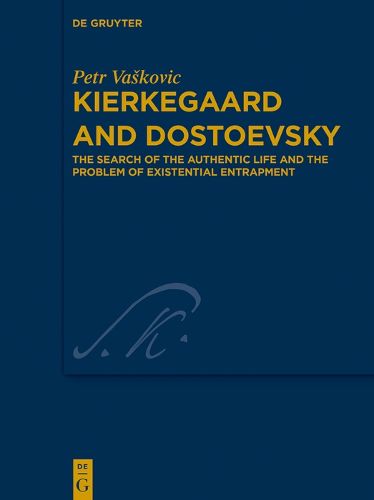Readings Newsletter
Become a Readings Member to make your shopping experience even easier.
Sign in or sign up for free!
You’re not far away from qualifying for FREE standard shipping within Australia
You’ve qualified for FREE standard shipping within Australia
The cart is loading…






The book brings together the philosophy of Soren Kierkegaard with that of another prominent proto-existentialist thinker, Fyodor Dostoevsky. Asking the question: "What constitutes an authentic Christian life?", the book explores the answer given by both authors, which is that one should rid oneself of selfish inclinations and strive for a life of faith that revolves around the virtues of humility and non-preferential love. However, as we learn from Dostoevsky and Kierkegaard, becoming an authentic individual is no easy task, and the book goes on to examine the obstacles that lie in the path of individual existential self-development.
The book then examines the ways in which the various characters and pseudonymous authors who populate Dostoevsky's and Kierkegaard's books struggle in their attempts to become authentic ethical and religious individuals. The examination of this struggle, termed existential entrapment and defined as the inability to progress on the path of one's existential self-development, forms the core of the book and helps to map out the ethical-religious landscape of Dostoevsky's and Kierkegaard's thought.
$9.00 standard shipping within Australia
FREE standard shipping within Australia for orders over $100.00
Express & International shipping calculated at checkout
Stock availability can be subject to change without notice. We recommend calling the shop or contacting our online team to check availability of low stock items. Please see our Shopping Online page for more details.
The book brings together the philosophy of Soren Kierkegaard with that of another prominent proto-existentialist thinker, Fyodor Dostoevsky. Asking the question: "What constitutes an authentic Christian life?", the book explores the answer given by both authors, which is that one should rid oneself of selfish inclinations and strive for a life of faith that revolves around the virtues of humility and non-preferential love. However, as we learn from Dostoevsky and Kierkegaard, becoming an authentic individual is no easy task, and the book goes on to examine the obstacles that lie in the path of individual existential self-development.
The book then examines the ways in which the various characters and pseudonymous authors who populate Dostoevsky's and Kierkegaard's books struggle in their attempts to become authentic ethical and religious individuals. The examination of this struggle, termed existential entrapment and defined as the inability to progress on the path of one's existential self-development, forms the core of the book and helps to map out the ethical-religious landscape of Dostoevsky's and Kierkegaard's thought.